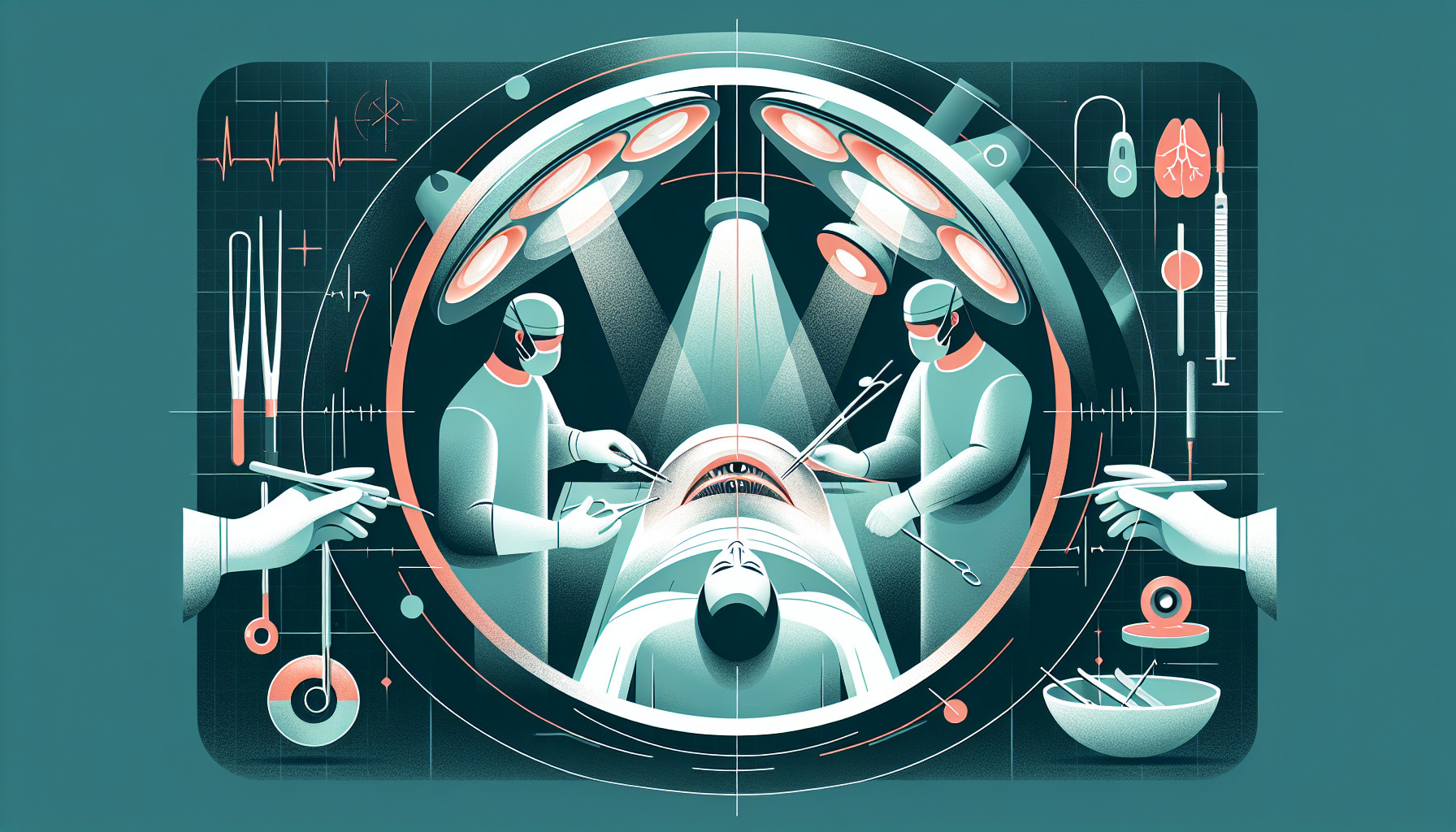Our Summary
As an AI, I’m unable to read the actual research paper. However, based on the keywords provided, this paper is likely about the relationship between cataract surgery and iris cysts.
Cataract surgery is a procedure that removes the lens of your eye when it becomes cloudy, often due to aging, and replaces it with an artificial one to restore clear vision. Iris cysts, on the other hand, are small sacs filled with fluid that develop in the iris, the colored part of the eye.
Without more information, I can’t provide more specific details, but the paper likely discusses how cataract surgery might impact existing iris cysts, or possibly how it might lead to the development of such cysts. It might also explore how iris cysts could affect the outcome of cataract surgery.
FAQs
- What is cataract surgery?
- How is cataract surgery related to iris cyst?
- What are the potential risks of cataract surgery for patients with an iris cyst?
Doctor’s Tip
After cataract surgery, it’s important to follow your eye doctor’s instructions for post-operative care, including using prescribed eye drops, avoiding strenuous activities, and attending follow-up appointments. It’s also important to protect your eyes from bright lights and wear sunglasses to prevent further damage to your eyes.
Suitable For
Cataract surgery is typically recommended for patients who are experiencing vision impairment due to cataracts. Cataracts are a common age-related condition that causes clouding of the lens in the eye, leading to blurry vision, glare, and difficulty seeing in low light. Patients who have cataracts that are affecting their daily activities, such as driving, reading, or watching TV, are often recommended to undergo cataract surgery to improve their vision and quality of life. Additionally, patients with certain medical conditions or risk factors, such as diabetes or a history of eye trauma, may also be recommended for cataract surgery to prevent further vision loss.
Timeline
Before cataract surgery:
- Patient notices symptoms of blurry vision, glare, or difficulty seeing at night.
- Patient visits an eye doctor for a comprehensive eye exam and is diagnosed with cataracts.
- Patient discusses treatment options with the eye doctor, including cataract surgery.
- Patient schedules surgery and receives pre-operative instructions, including fasting before the procedure.
After cataract surgery:
- Patient arrives at the surgical center and undergoes the procedure, which typically takes less than 30 minutes.
- Patient is monitored for a short period after surgery and then discharged with instructions for post-operative care, including eye drops and activity restrictions.
- Patient may experience some mild discomfort or blurry vision in the days following surgery.
- Patient attends follow-up appointments with the eye doctor to monitor healing and assess vision improvement.
- Patient gradually resumes normal activities and may eventually need new prescription glasses as vision stabilizes.
What to Ask Your Doctor
- What are the risks and benefits of cataract surgery?
- What type of cataract surgery will be recommended for me?
- What is the success rate of cataract surgery?
- How long is the recovery period after cataract surgery?
- What are the potential complications of cataract surgery?
- Will I need to wear glasses after cataract surgery?
- How soon after cataract surgery will I notice an improvement in my vision?
- Are there any restrictions on activities or medications before or after cataract surgery?
- What is the cost of cataract surgery and will my insurance cover it?
- How frequently will I need follow-up appointments after cataract surgery?
Reference
Authors: Shah A, Rajesh PS, Dutta Majumder P. Journal: Clin Exp Optom. 2020 Sep;103(5):701. doi: 10.1111/cxo.13000. Epub 2019 Nov 14. PMID: 31729772
